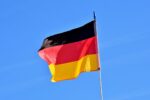The most valuable German brands have reached new heights in 2025, collectively valued at $506 billion—a 24% increase compared to the previous year.
Image Source: www.unsplash.com
The latest Kantar BrandZ Top 50 Most Valuable German Brands report shows how brand innovation, consumer trust, and international expansion are transforming Germany’s economic landscape.
The 2025 top 10: A diverse mix of sectors
Here are the top ten brands leading Germany’s brand value rankings this year:
- Telekom / T-Mobile – $105.7 billion (Telecommunications)
- SAP – $92.3 billion (Enterprise Technology & Services)
- Siemens – $36.4 billion (Enterprise Technology & Services)
- Aldi – $23.4 billion (Retail)
- Bosch – $22.7 billion (Enterprise Technology & Services)
- Adidas – $21.1 billion (Clothing)
- Mercedes-Benz – $20.8 billion (Automotive)
- BMW – $20.1 billion (Automotive)
- DHL – $18.4 billion (Logistics)
- Lidl – $15.5 billion (Retail)
This mix illustrates the strength of Germany’s telecommunications, software, manufacturing, retail, and automotive industries.
Telekom maintains its crown
For the third consecutive year, Telekom leads as the most valuable German brand and has now crossed the symbolic $100 billion mark. It also ranks among the top 20 global brands and has become the world’s most valuable telecommunications brand, ahead of American competitors.
Telekom’s brand growth is driven by large-scale investments in 5G technology, consistent marketing, and impactful campaigns like #NoHateSpeech, which emphasize responsible digital communication and social good.
SAP and Siemens showcase German innovation
SAP sits firmly in second place after a remarkable 79% increase in brand value, rising to $92.3 billion. As the top climber in this year’s rankings, SAP continues to lead in enterprise software and cloud computing, while embracing artificial intelligence and machine learning to enhance its offerings.
Siemens follows in third place, with a brand value of $36.4 billion and a 29% growth from the previous year. With a diversified focus on energy, healthcare, and industrial automation, Siemens benefits from sustainable and digital transformation strategies.
Retail giants gain ground
Retail brands make a strong showing in the top 10, with Aldi (4th) and Lidl (10th) together contributing over $38 billion in brand value. Aldi’s rise into the top five is attributed to global expansion and its reputation for high-quality products at affordable prices. Lidl also climbed one position, boosted by a 21% increase in brand value.
Edeka, in 19th place, saw a 16% increase in value. Known for creative campaigns like “We love food,” Edeka has been recognized as the “Most Creative Brand” in Germany this year.
Birkenstock leads new entrants
Among the new entrants, Birkenstock made the most significant debut at rank 25 with a brand value of $2.8 billion. The brand has gained global traction, particularly among younger consumers, bolstered by cultural moments such as its prominent appearance in the 2023 film Barbie. Its collaborations with fashion icons like Manolo Blahnik and Jil Sander have also expanded its appeal.
Other newcomers include Kärcher, Douglas, and Penny Markt. Kärcher (No. 48) marks its 90th anniversary with record global sales. Douglas (No. 49) leads in Europe’s premium beauty segment as an omnichannel retailer. Penny (No. 50) continues to win over budget-conscious shoppers in Germany.
Automotive brands hold firm despite global pressure
Germany’s auto industry continues to represent 15% of total brand value in the top 50, despite growing international competition and the threat of U.S. tariffs. Brands like Volkswagen, Audi, Mercedes-Benz, BMW, and MAN remain resilient as they invest in electric vehicles and sustainable mobility.
Volkswagen (14th) and Audi (15th) both posted modest growth, while Mercedes-Benz and BMW remain in the top 10, reflecting their ongoing global relevance.
Why brand investment matters more than ever
Ben Ballensiefen, CEO of Kantar in Germany, emphasized the importance of sustained investment, especially during times of economic uncertainty. “Brands that continue to invest through good times and bad are more resilient and better positioned to identify future growth opportunities,” he said.
While the 2025 rankings are cause for celebration, they also serve as a reminder: market leadership today doesn’t guarantee success tomorrow. Brands that maintain relevance through innovation, creativity, and trust will lead the way forward.
Looking ahead
The most valuable German brands of 2025 reflect a country whose business landscape is evolving to meet global challenges head-on. From technology to retail and automotive, German brands are not just keeping pace—they are setting standards worldwide.
The question now isn’t whether German brands can compete globally. It’s how far they can go as they double down on innovation, sustainability, and consumer engagement in the years ahead.
Powered by consumer insight: The BrandZ methodology
What sets BrandZ apart is its robust data foundation. The rankings are based on the opinions of:
- 4.5 million consumers
- Across 22,000 brands
- From 538 categories
- In 54 countries
This makes BrandZ the most comprehensive and trusted brand equity evaluation system in the world. It combines consumer perception with financial performance to assess the true power of a brand.
***





